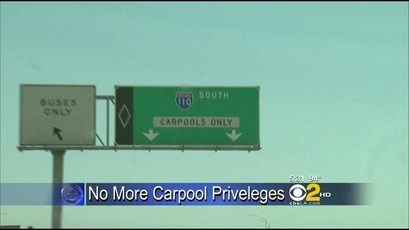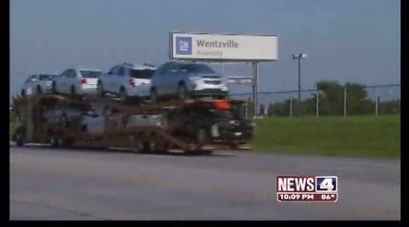Daily News - New VW plant on UAW radar as friendly target (AP) Daily Business News
CHATTANOOGA, Tenn. – After decades of getting the cold shoulder from automakers in the South, the United Auto Workers union is courting the region's newcomer, Volkswagen.
UAW southern region director Gary Casteel told The Associated Press that the Wolfsburg, Germany-based automaker has traditionally had an organized work force globally and that makes executives and employees at the new Chattanooga assembly plant "more willing to talk to unions about representation."
Volkswagen has started sending 2012 Passats to dealers for test drives and displays until the cars built by some 1,900 employees at the $1 billion plant go on sale in late September.
Casteel said the UAW has had some VW workers in Chattanooga reach out to them and there have been discussions with VW executives.
"Any decision on representation belongs to our employees alone," Volkswagen said in a statement.
Casteel said no official organizing effort has started.
"We have dialogue with them," Casteel said.
He said VW, unlike Asian and some other European automakers, welcomes applicants who have worked in union jobs.
"One of Volkswagen's core values is the basic right of employees to have a voice in the company," Chattanooga VW spokesman Guenther Scherelis said in the automaker's statement Friday. "We value the diversity of experience of our employees and welcome applicants from all backgrounds. We do not consider or track past union affiliation at all in our selection process."
Volkswagen previously operated a New Stanton, Pa., assembly plant with union workers that closed in 1988 following disappointing sales.
Scherelis declined to speculate about any possible future relationship with the UAW or any other third party but said in the statement that Volkswagen is "open for communication with groups from different backgrounds."
Casteel said the UAW has never had success trying to organize an auto assembly plant in the South. It has union locals at auto parts plants and in number of other industries in the region. But it has been repeatedly voted down by employees at Nissan, which in 1973 started production as the first Japanese automaker in the South.
The UAW several months ago made an unsuccessful attempt to initiate an organizing effort at the Hyundai assembly plant in Montgomery, Ala., but found no enthusiasm in individual contacts with workers at their homes. Hyundai Montgomery spokesman Robert Burns acknowledged the union's attempted home visits but declined to elaborate.
"The problem is there is so much intimidation and fear out there," Casteel said. "Who is willing to face the intimidation? That is the key to it." He said workers at some auto plants are now getting paid as little as $12 an hour.
Mike Goss, a Toyota spokesman in Erlanger, Ky., said Toyota has been on the UAW's "radar screen for 25 years. We know we are on their radar screen. We are not seeing any unusual activity and as always it is up to our team members whether or not they need representation."
In a 2010 U.S. Department of Labor filing, the UAW said it had 376,612 members. That was up 6 percent from 2009 and the first time since 2004 that the union added members.
"The perfect scenario is to have a company agree to a fair election," Casteel said. "Let the workers decide on an agreement conducive to the company, where the workers have representation and the company continues to function. It doesn't have to be a fight. It can be the workers engaged in the success of the company. That is the relationship we are working for."
He said the UAW later this summer plans to start a global organizing effort aimed at one automaker, likely one with a plant in the South. He declined to say which automaker might be the target but predicted it will not be Volkswagen.
"We look at them as a model of what car companies should be," Casteel said.
Mike Randle, editor and publisher of Southern Business and Development, a publication based in Birmingham, Ala., said auto workers no longer need union representation.
He said auto assembly plants typically start workers at $15 an hour.
"What's the point? Organizing is a `50s, `60s and `70s model," Randle said. "It's outdated. They (auto workers) are already being paid higher than anybody else.
"We've got folks who do not have a college degree and making $50,000 to $75,000 a year working in an auto plant," he said. "What do you need a union for?"


Comments :
Post a Comment